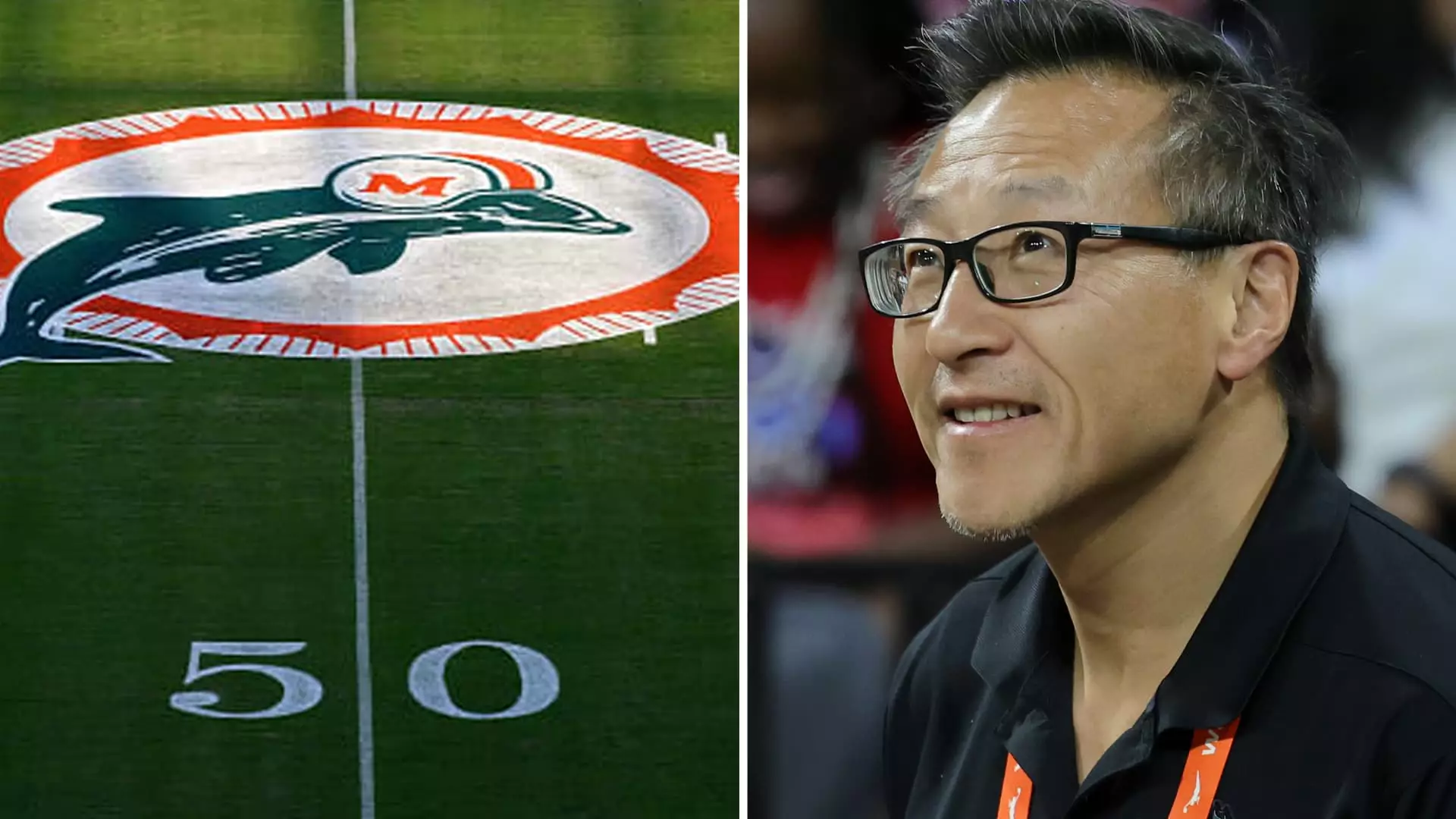The world of professional sports is undergoing a significant transformation, with private equity firms increasingly becoming key players in team ownership. A recent development involving the Miami Dolphins exemplifies this trend, as owner Stephen Ross engages in advanced discussions to sell a minority stake in the team to Ares Management and billionaire Joe Tsai. This move not only highlights the evolving landscape of sports finance but also raises questions about the implications of private equity involvement in franchises that traditionally relied on individual owners.
The preliminary deal surrounding the Miami Dolphins involves not just the football team but also associated assets like Hard Rock Stadium and rights to major events such as the Miami Grand Prix and the Miami Open. The financial value of this acquisition is reported to be an astonishing $8.1 billion, an indication of the immense profitability and commercial potential that modern sports teams can yield. As a noteworthy comparison, the Dolphins are valued at $7.1 billion by CNBC, ranking them as the league’s eighth most valuable team, excluding the stadium’s worth.
In 2023, the Dolphins reportedly generated a revenue of around $673 million, highlighting the significant financial footprint of NFL franchises. This revenue generation showcases how ownership now extends beyond the game itself, integrating various profitable ventures tied to the sports ecosystem.
The NFL has historically been resistant to private equity involvement, but the league’s recent vote allowing selective firms to invest up to a 10% stake marks a pivotal shift. This change comes amidst challenges faced by owners to maintain traditional revenue streams and secure capital in an era where franchise values are soaring. Ross’s decision to engage in these talks while having previously rejected a staggering $10 billion bid for control of the team reflects a desire to adapt to a changing marketplace while retaining ownership family legacy.
The entry of private equity firms like Ares Management signals a potential departure from the model of team ownership dominated by wealthy individuals. The prospect of private equity involvement may offer franchises access to vital capital for expansion, innovation, and ultimately, enhanced revenue generation, though it does present the risk of altering the competitive landscape of the league.
Billionaire Joe Tsai, known for his extensive business acumen as the chairperson of Alibaba Group, has been steadily expanding his sports portfolio. With ownership stakes in teams across multiple sports—including the Brooklyn Nets and the New York Liberty, along with the operation of Barclays Center—Tsai’s involvement in the Dolphins deal aligns with his broader strategy of creating a diversified sports empire.
His investments reflect an increasing trend of owners diversifying their interests across different leagues and ownership structures, illustrating how sport is evolving into a multifaceted business ecosystem unimaginable in previous decades. This diversification strategy not only spreads risk but also optimizes revenue opportunities from various sporting and entertainment venues.
The advances in private equity investment in teams like the Dolphins introduce new dynamics into sports ownership. While the influx of capital can be beneficial, it raises questions regarding the influence of invested capital on team decisions, competitive balance, and the overall direction in which franchises will head. Will this trend lead to a more homogenized approach to ownership, with profit as the primary motive, or will it allow for greater innovation and fan engagement through revitalized capital inputs?
As traditional revenue models evolve, the insights afforded by private equity firms about optimal financial strategies could enhance team operations. However, the intimate relationship between a local fan base and their team is something that remains fragile and has historically been rooted in passion rather than profit. The challenge will be finding a balance that maintains this connection while ushering in a new era of revenue-driven decisions.
The ongoing negotiations regarding minority stake sales in the Miami Dolphins serve as a pivotal moment in sports management, encapsulating the shifting ethos of team ownership. With stakeholders like Ares Management and Joe Tsai entering the fray, the future of sports franchises may encompass greater financial sophistication, capacity for revenue enhancement, and ultimately, a need for thoughtful integration of business strategies with the rich culture of sport. As developments unfold, the implications for fans, players, and the league as a whole will be crucial in determining how these changes manifest in the tapestry of professional athletics.

